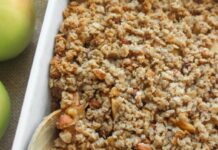I know that all of you have seen the word calorie many times over by this point, but how many of you have actually thought about what a calorie actually is? Probably not too many. When it really comes down to it, calories are what help us achieve or goals of either losing or gaining weight, so it’s important to understand what a calorie actually is and how it effects these goals.
Most of you probably already know that to lose weight you need to have a calorie deficit in your diet, and to gain weight you need a calorie surplus, let’s explain why this is the case.
A “calorie” is actually a unit of energy. More specifically, a calorie is the amount of energy, or heat, it takes raise the temperature of 1 gram of water 1 degree Celsius, or 1.8 degrees Fahrenheit.
Most of us think of calories as being related to food, but calories can be found in just about anything containing energy. The calories that we see in foods are actually Kilocalories (1,000 Kilocalories = 1 calorie), but it’s easier for people to consider everything as a calorie so that’s what we use.
So, are you starting to see how these calorie deficits and surpluses can help us? Let’s look into it further.
When it comes to the body, it needs to energy to survive. It needs energy to do every single solitary function that the body does. If you were to eat a food that let’s say has 180 calories, your body takes this and breaks it down through metabolic processes (You’ll learn more about this in another article). These metabolic processes break down the carbohydrates, fats, and proteins and send them through the blood stream to cells, or continue on with the metabolic process to react with Oxygen to release energy.
To simplify things, Carbohydrates, Fats, and Protein, are the actual energy when broken down by our body. So 1g Carbohydrate = 4 calories, 1g Fat = 4 calories, and 1g Protein = 9 calories. If you take those numbers and calculate them for a food you’ll notice that it adds up to about the same number of Calories that it says on the label.
You’re probably asking yourself, “How the heck does this effect my weight loss/weight gain then?”. Well, consider this. If my Basal Metabolic Rate, or BMR, is 2500 calories per day, meaning the amount of energy my body needs to maintain it’s current state, and I consume 1900 calories day, then my body is going to have to make up for those 600 lost calories somewhere else. Usually in the form of Fat, causing fat loss. Likewise, if I consume 3000 calories, my body isn’t going to need 500 of those calories so it stores the Carbohydrates, Fats, and Proteins causing weight gain.
All of this, of course, is dependent on the type of food you consume. If I consume 1900 calories from Fat and Carbohydrates then I am most likely going to lose a lot of muscle, but you can bet I’ll lose weight as well. This is why it’s important to maintain a good Macronutrient ratio which includes Protein, Carbohydrates, and healthy Fats.







































